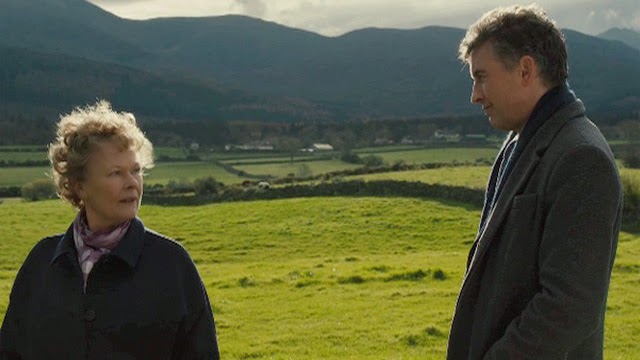At Angkor Wat, Siemreap, Cambodia
The early
images I had of dollhouses were those in story books. Usually dollhouses were
placed in nurseries and children had loads of fun playing with their tea sets
and dolls. To any child, seeing such pictures is like an unattainable dream,
the sort that fairy tales are made of. Until the child becomes an adult and can
indulge in the spoils of her labour.
I first
met Sarita about 3 years ago and when I saw her dollhouses, I was bowled over.
The best part was she built them, from the basement to the roof. Everything was
so meticulously done and love was written all over her creations.
Then one
day, on the way home from Dublin , Michael pulled over at Mitchelstown and there was this lovely shop
that sold beautiful dollhouses. So I had to realise the dream of my childhood
and bought a dollhouse for myself.
As I made
the quilt, mattress and pillows for the tiny beds, I could remember vividly the
tiny dresses I made for my children’s dolls. Then I progressed to making
clothes for my children – beautiful frocks embellished with smocking and embroidered
roses for Sonya and Audrey and pyjamas and bow ties for Samuel. And now that
the children have grown up, I wonder where all the time went and how they could
have fitted into those tiny clothes once.
We wonder
what we have imbued in our children. Have we given them life skills? Have we
showed them love? Have we disciplined them? Have we given them not only the knowledge of God but the experience of knowing
God?
One
of my friends whose son has just started college in another town said, ‘You
never realise the seriousness of what you do with your children until a new
season of a big change dawns.... which tells me of what and how I have invested
into the life of my son..’
Some
studies indicate that foetuses can hear and react to sound by moving. Other studies say music may enhance children's intelligence
and spatial reasoning skills. So, I remember I took up piano lessons just so
that my babies could listen to music regularly while still in the womb. Whether
it is coincidental or not, all my three children have perfect pitch and love
music.
Then
I read somewhere that children can read at an early age. So I taught them all
how to read at 18 months so by the time they were four, they were familiar
faces at the public library – a place where they could just sit for hours to
enjoy a good book.
Whatever
we would like to instill in our children, be it a love for music or for reading,
the key words are enjoyment, consistency and commitment. I remember the hours
that I spent reading to the children and sitting with them in a variety of
music classes. I remember the number of music teachers that came in and out of
our house – the short-lived strict teachers, the ill-tempered teachers and the
encouraging teachers.
We
all want our children to make us proud. Teaching them manners, respect, ethics
and a good attitude in life is what will set them apart. Disciplining them when
they are wrong and teaching them the realities of life will help them know that
the world does not owe them a living. Making them capable and confident will
prevent them from relying on others for handouts. We do the child a huge favour
when he is made to realise that he is not the centre of the universe and not
everything is about him.
While Ireland celebrates Mother’s day in March, May 11 is Mother’s Day in
Malaysia .
Audrey
wrote on my timeline ‘Thank you for being such a great mum who brought me up to
love the Lord and to reach for my goals. Thank you for all the love and care
you’ve shown me throughout the years. Thank you for everything you’ve done. I
love you, mum.’
And she gave me a dinosaur onesie. (one-piece jumpsuit) Now
what child gives a mum with grown up children that? She must know her mum very
well. So I wore it complete with a ridge on its back and a tail and when I
worked in the garden, my dog went completely mad, wondering what his mistress
has morphed into.
Back to
the dollhouse. When the switch is on, voila, the whole house lights up with the
little people in it and it looks so beautiful, just like a home with the people
you love in it.
Happy Mother’s Day
Source: http://www.nst.com.my/opinion/columnist/the-gift-of-motherhood-1.586486











.jpg)










.jpg)





















